May 14-25 Cannes XR and NEXT http://www.marchedufilm.com/en/next/home
More soon….
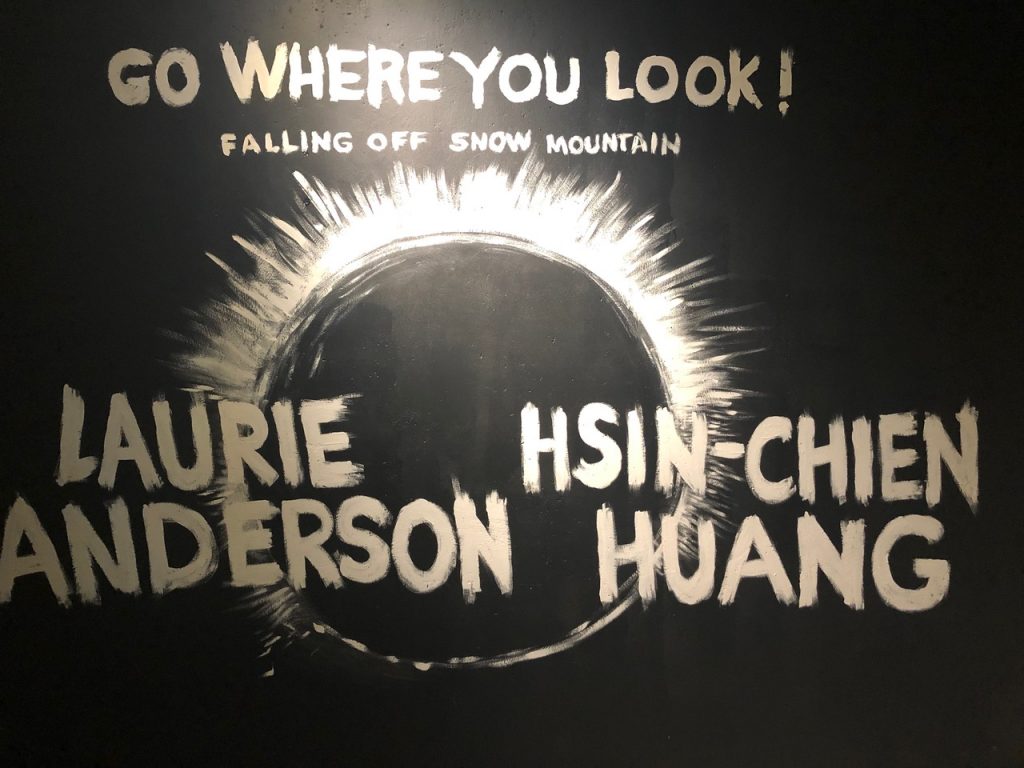
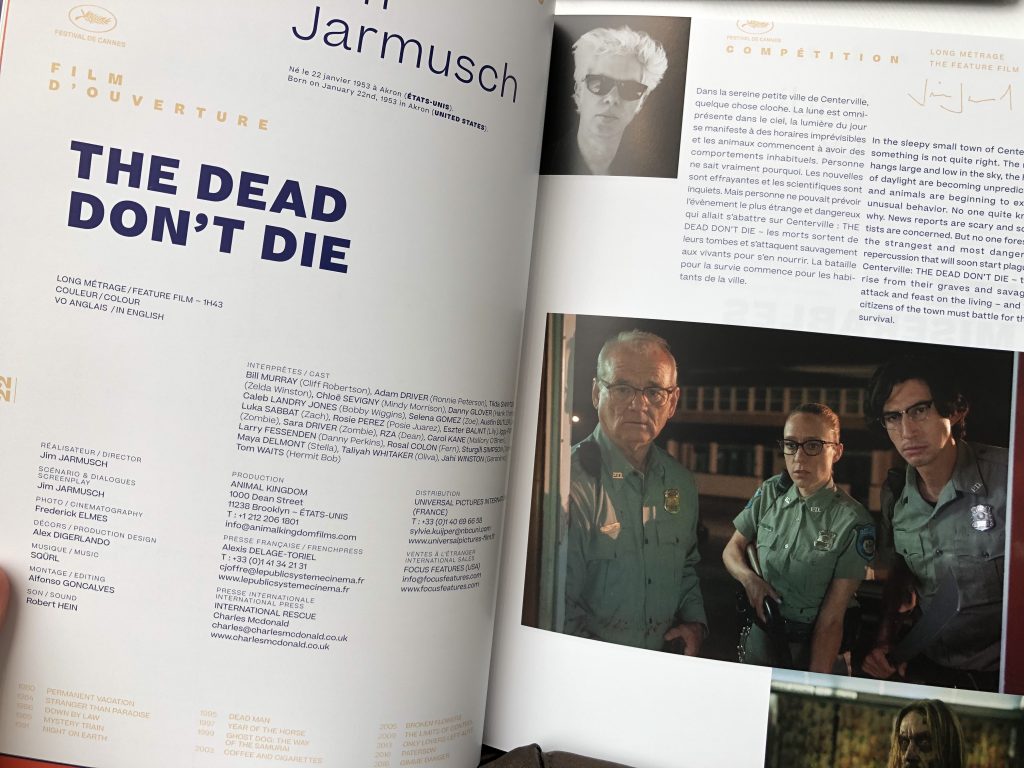
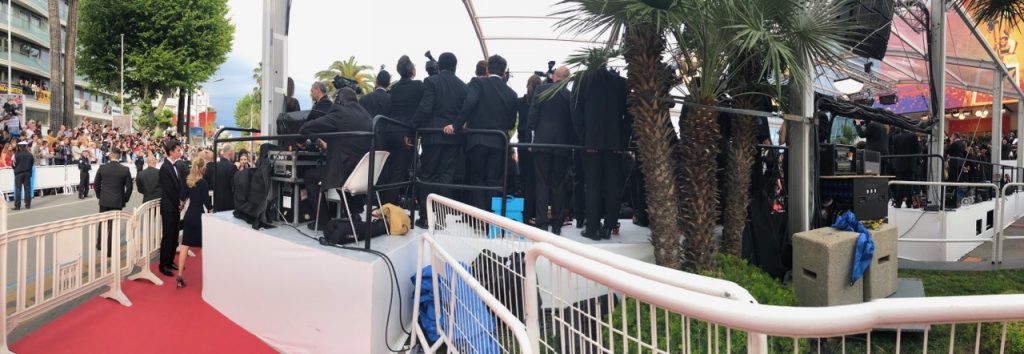
Enactive Virtuality Research Group, Tallinn University
Activities related to narratives, and narrative systems, art-science, academic and popular events, including related industry engagements
Department of Digital Learning Games, professor Martin Sillaots organised a visit hosted by Professor Anneli Kolk (image) and her team at the Department of Paediatrics at the Tartu University Hospital. Among other things they focus on developing the social perception and cognitive abilities of children with neurological damage, using touch screen and VR technologies.
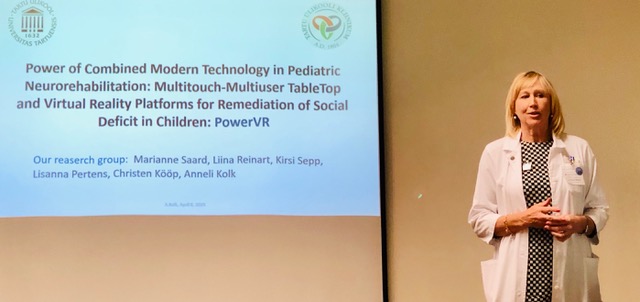
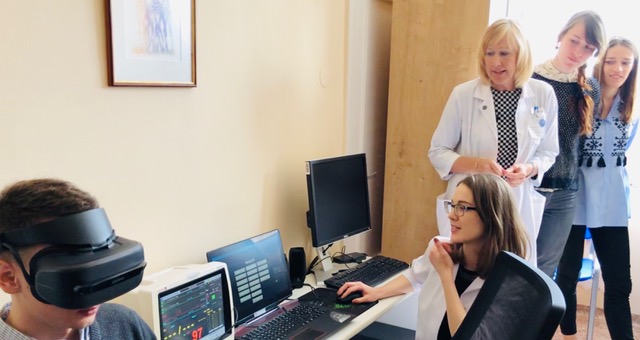

Invited talk on “Narrative Sense-Making – A Neurocinematic Approach” at the Max Planck Institute for Empirical Aesthetics (MPI), Frankfurt am Main, March 26, 2019.
Presentation at the Cinema of the Deutsches Filminstitut & Filmmuseum, Frankfurt am Main, Brain on the Screen public series of 4 introductory talks: Ed Vessel, Vittorio Gallese, Marie Therese Forster, and Pia Tikka.

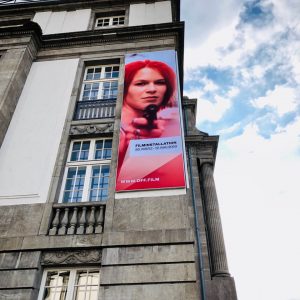
Run Lola Run (German: Lola rennt) is a 1998 German thriller film written and directed by Tom Tykwer, and starring Franka Potente as Lola and Moritz Bleibtreu as Manni. The story follows a woman who needs to obtain 100,000 Deutsche Mark in twenty minutes to save her boyfriend’s life.
The Brain on Screen
Diese und weitere Fragen stehen im Zentrum der Film- und Vortragsreihe „The Brain on Screen“, die das Max-Planck-Institut für empirische Ästhetik gemeinsam mit dem Deutschen Filminstitut & Filmmuseum im März 2019 veranstaltet. An vier Dienstagen (5., 12., 19. und 26.03.2019) werden vier Experten jeweils eine Einführung in vier Filme geben, die aus neurowissenschaftlicher Perspektive interessant sind.
Während der anschließenden Filmvorführung hat das Publikum die Gelegenheit, hautnah mitzuerleben, wie neurowissenschaftliche Forschung zum Filmerleben aussehen kann. Wer möchte, kann Teilnehmer in einer den Film begleitenden Studie werden.
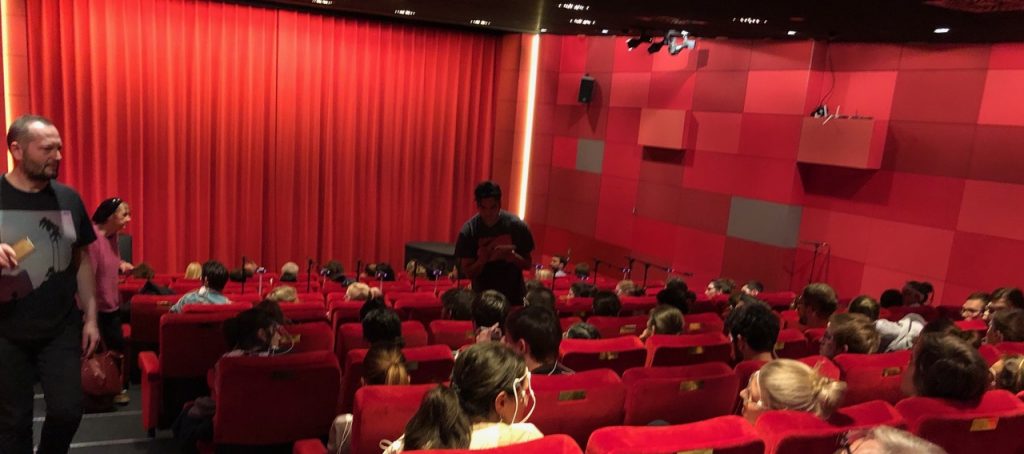
„The Brain on Screen“ bietet einen wissenschaftlichen und praktischen Einblick in ein spannendes Forschungsfeld und verwandelt das Gehirn selbst in einen Akteur.
Wenn Sie Interesse haben teilzunehmen, können Sie sich hier anmelden.
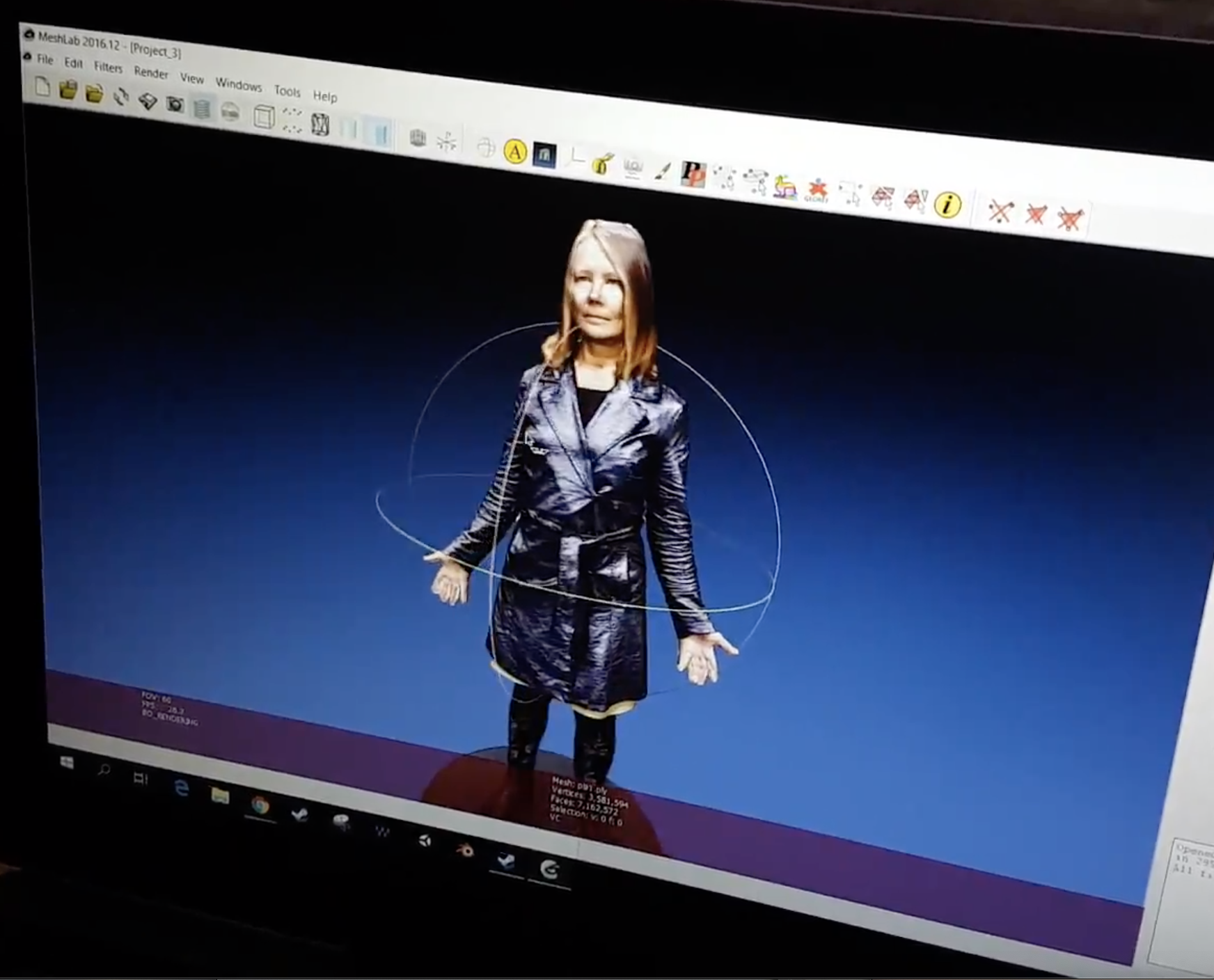
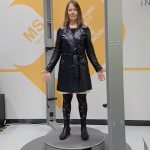
Hong Kong Virtual Reality Scene and Inno Hub facilities allow access to full body scans. Visit hosted by Samantha Goh and Sze Chianly (image below), founders of HKVR Network.
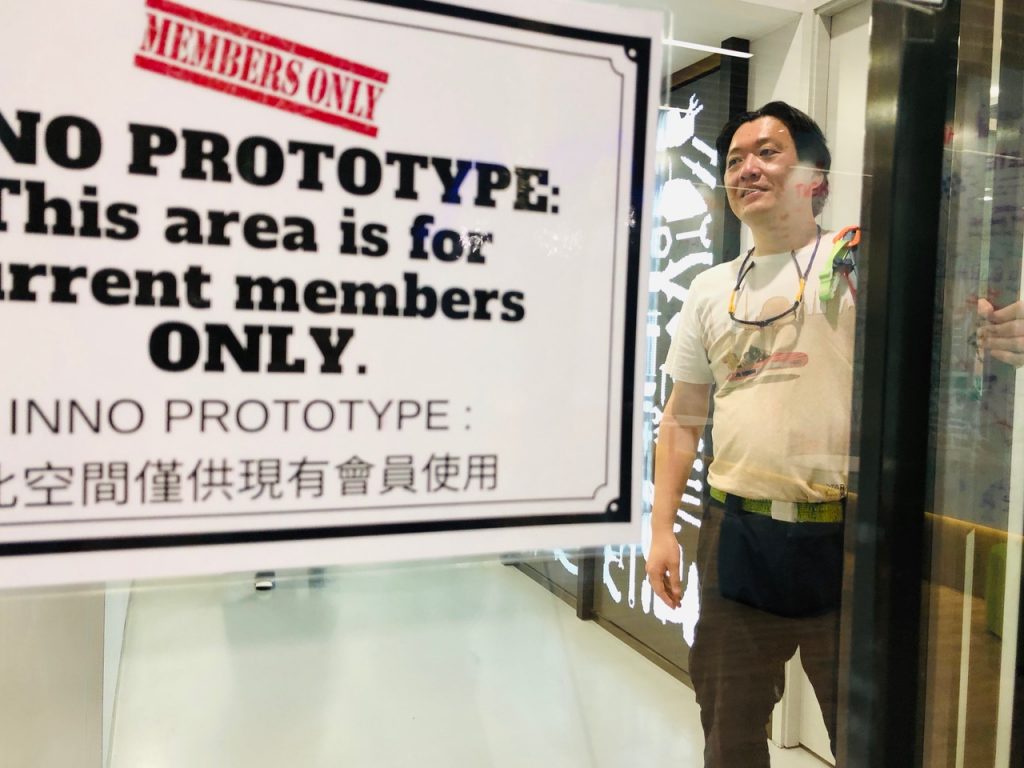
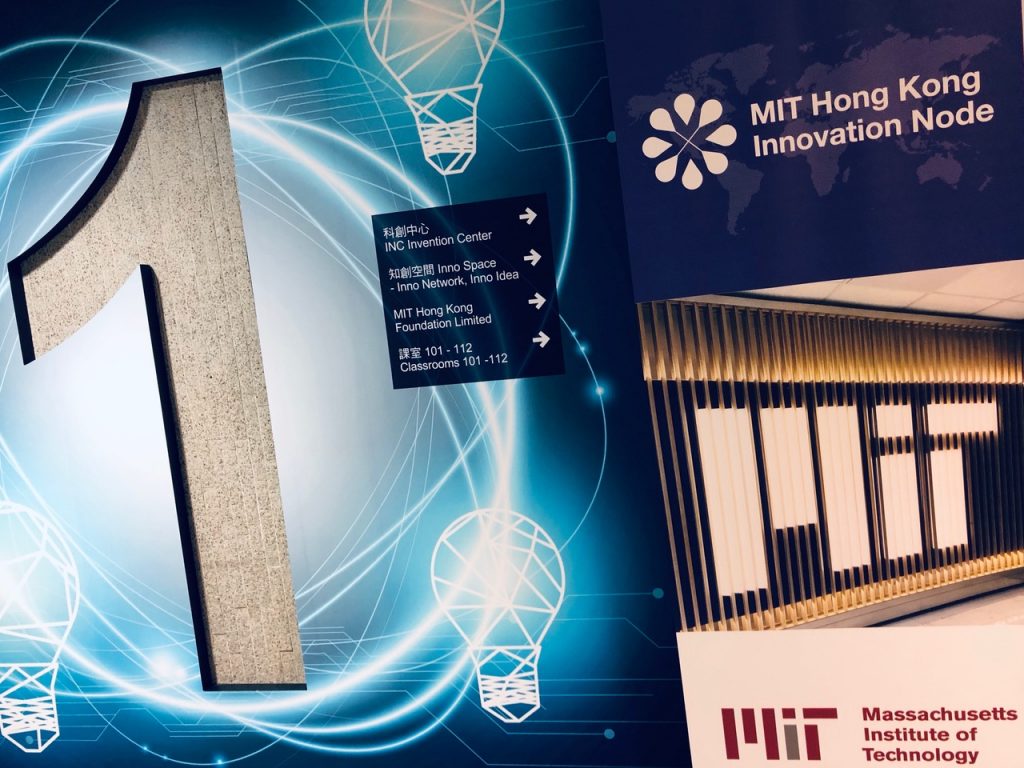
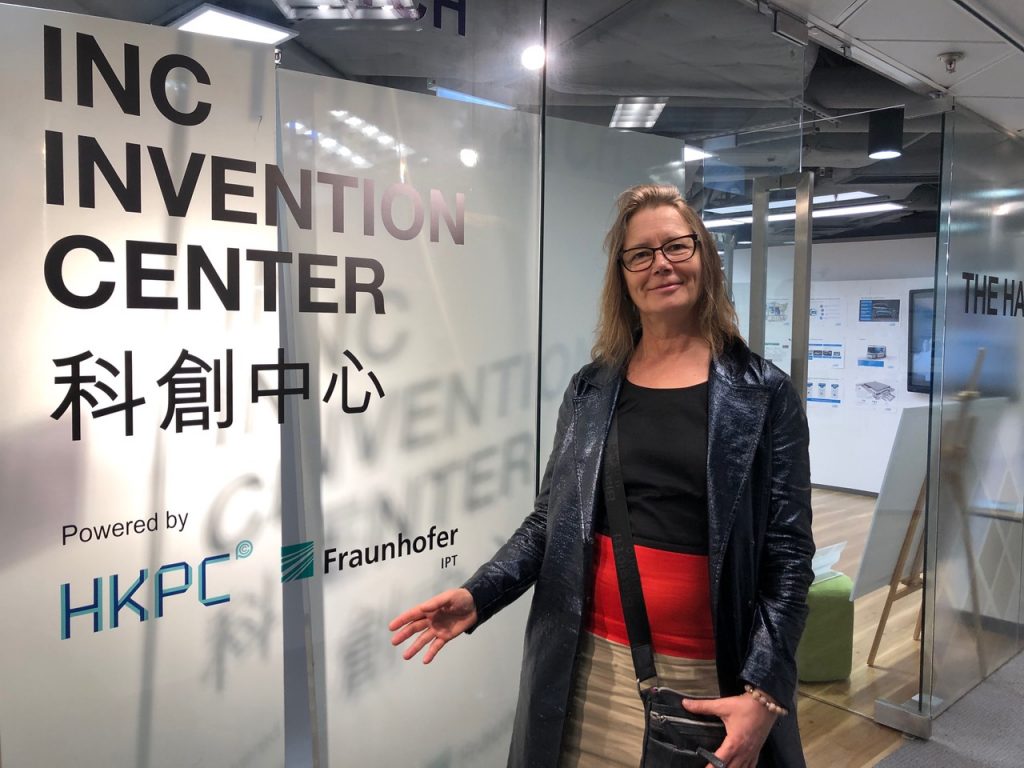
Image: Happy to find the presence of Enactive Virtuality Lab’s collaborators from Germany in Hong Kong.
Pia Tikka:
Date: 21 March, 2019
Time: 4:30 – 5:45 pm
Venue: AAB 905, Academic and Adminstration Building, Baptist University Road Campus, Hong Kong Baptist University, March 21, 2019.
 https://talent100.hkbu.edu.hk/
https://talent100.hkbu.edu.hk/
Abstract
I will introduce my concept of enactive virtuality, associated with the idea of narratives as fundamental constructs of human mind. Inspired by the approach to enactive mind by Fransisco Varela and colleagues, the concept of enactive virtuality describes the experiencing mind as a dynamical system of body, brain, and the world. The epistemic triangulation is suggested as a means of translating the concept to practice.
While audiovisual narratives have been shown to elicit very similar physiological responses in different viewers, however, individual life experiences define how the story is interpreted by each. The approach of triadic epistemology, a combination of methods from arts, social sciences, and psychophysiology allows generating integrated knowledge about how different viewers experience particular narratives. The method builds on the fundamentally pragmatist idea that no two domains of knowledge are enough to explain each other, but a third is always required to provide the interpretative angle. Therefore, understanding narrative content needs to be analyzed not only based on subjective reports of the viewers, because that is not anchored to any overall understanding, but they also need to be related to a neurophysiological repertoire of experiences. Similarly, being able to describe the neural activity data collected during the viewing of a film, it is not enough to relate it only to subjective reports of the viewers, but the observations also need to be interpreted to conventions of narrative dramaturgy and filmmaking. A selection of cases are described to clarify the concept of enactive virtuality and the proposed triadic method.
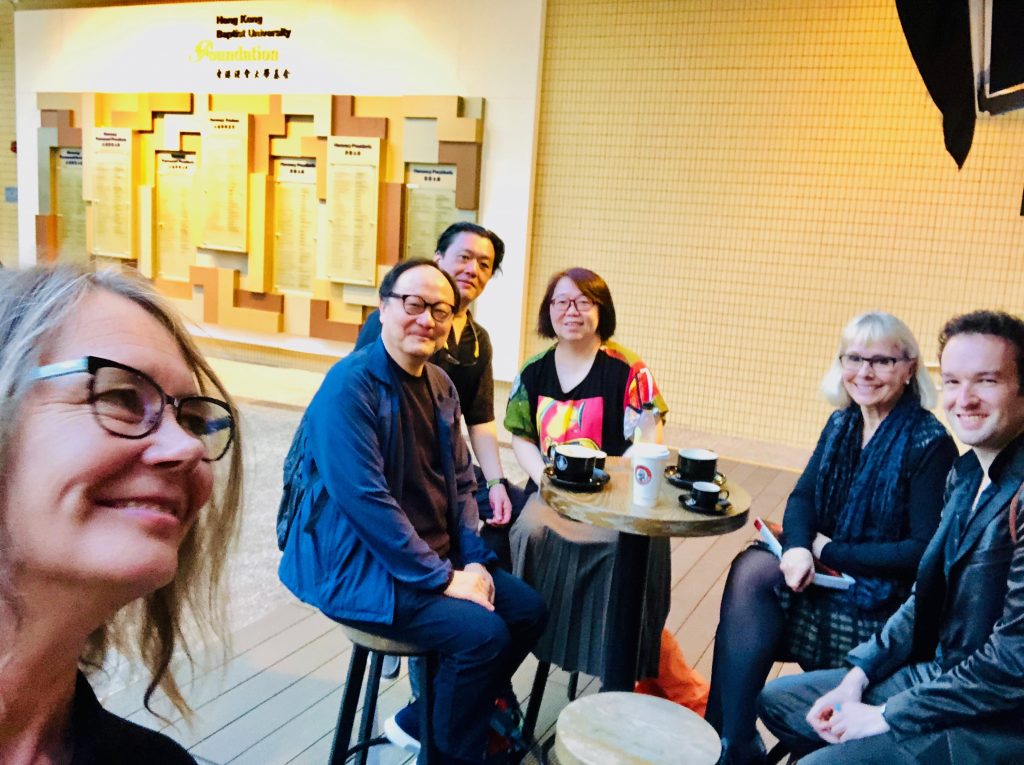
And a great aftermath of the Talk at the HKBU campus Cafe with Roger Carcia, Chianly Sze, Samantha Goh, Mette Hjort, and Eugene Birman.
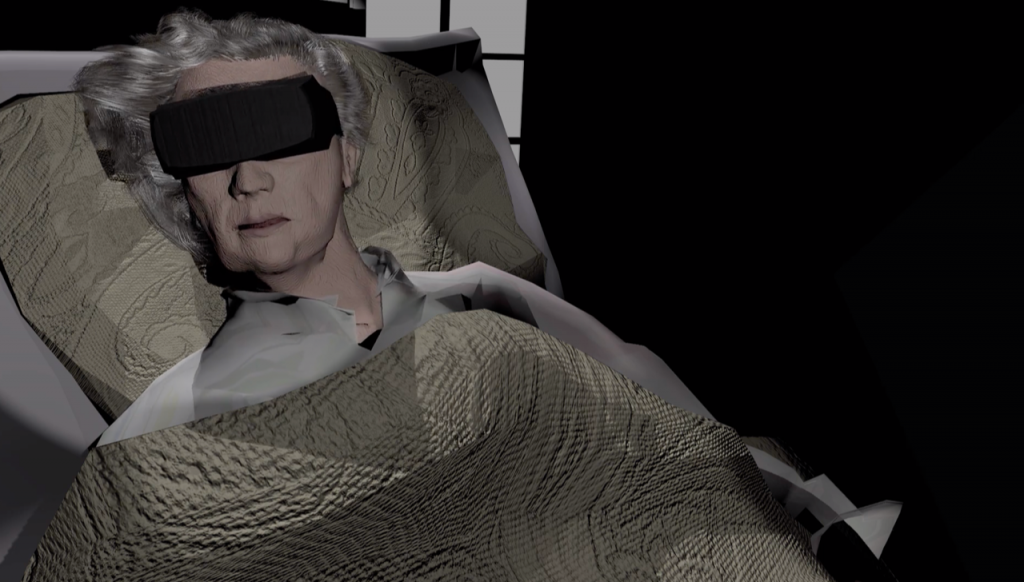
The very nature of the human species is social. Loneliness correlates with mental and physical ill-being within, for instance, the elderly, or people with disabilities, or other conditions causing reduced life-environment. Simultaneously, an increasing trend in the European lifestyle is to outsource taking care of such members of family, or in a broader scale, the society, into the hands of professional social and medical care. In the light of recent studies, loneliness can be considered a fatal condition. Loneliness reduces the ability to improve one’s life-conditions, motivation of taking care of one’s health, and affects negatively the functions of society, thereby indirectly also the European economy. As an indication of the urgency of the matter, UK has even appointed a Minister of Loneliness.
The issue dictates the need to figure out all plausible ways to fight loneliness. While human company must be the primary solution, other solutions must be considered to provide socio-emotional comfort to those who suffer of the lack of human accompaniment. An intriguing suggestion is whether technology in some form might contribute to relieve this sore issue.
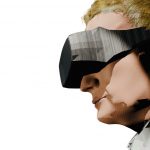
Work-in-progress: Enactive Virtuality Lab, BFM, TLU (MOBTT90) in collaboration with University of Tartu (UTARTU) Estonia, University of Barcelona (UB) Spain, Interdisciplinary Center Herzliya (IDC)Israel, Fraunhofer Heinrich Hertz Institute (HHI) Germany, Sense of Space Oy (SoS) Finland, Trotzkind GmbH (TRO) Germany and Tartu Linna Pensionäride Organisatsioon “Kodukotus” (TLPO) Estonia.
Image below: Skype group session during the project in development.
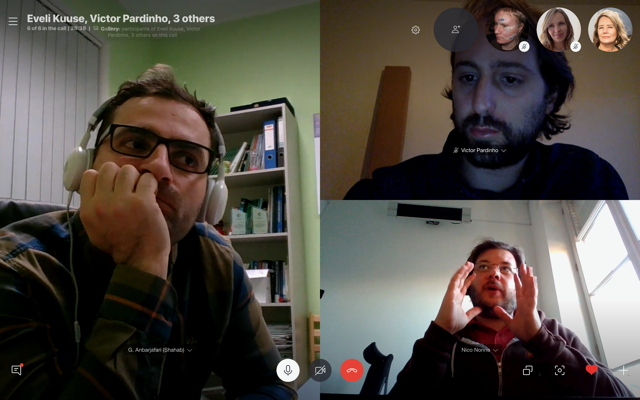
Video image: A conceptual 3D sketch of the shared experience between a bed-bound elderly and an enactive virtual accompaniment in VR immersive environment. The video depicts a first-person perspective to the co-presence when addressing loneliness by means of artificial accompaniment and virtual reality technologies. Against Loneliness: Sharing with Enactive Virtual Agent, MOBTT90. The 3D art work Eeva R Tikka, 2019.
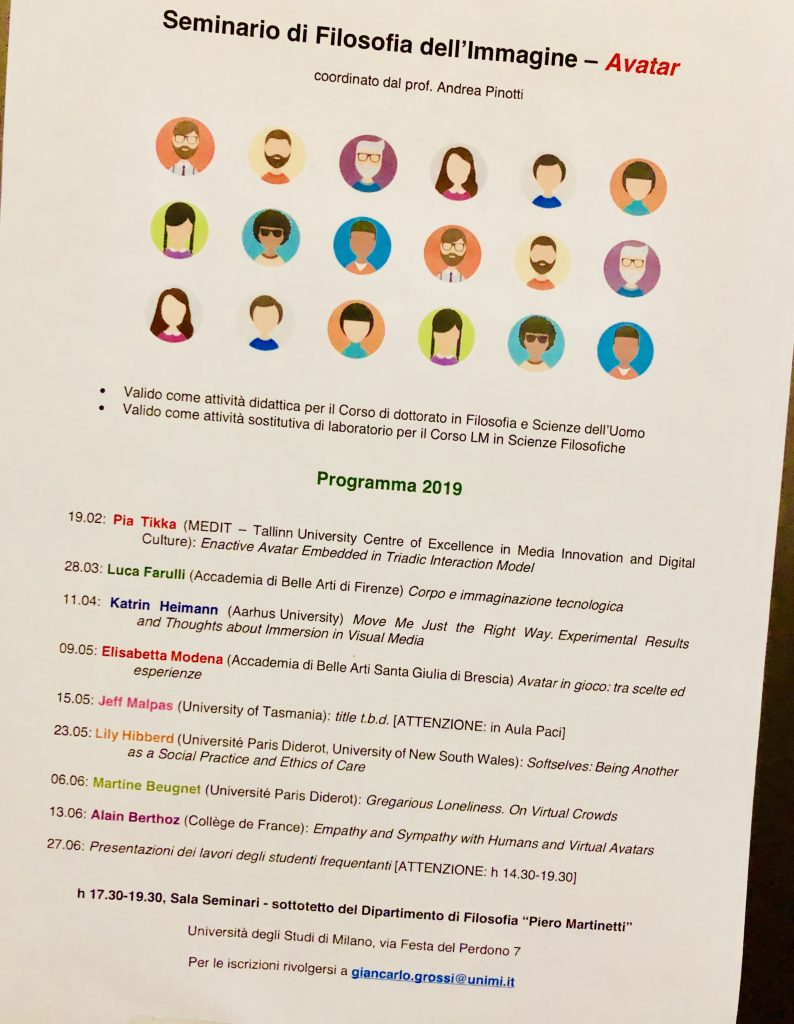
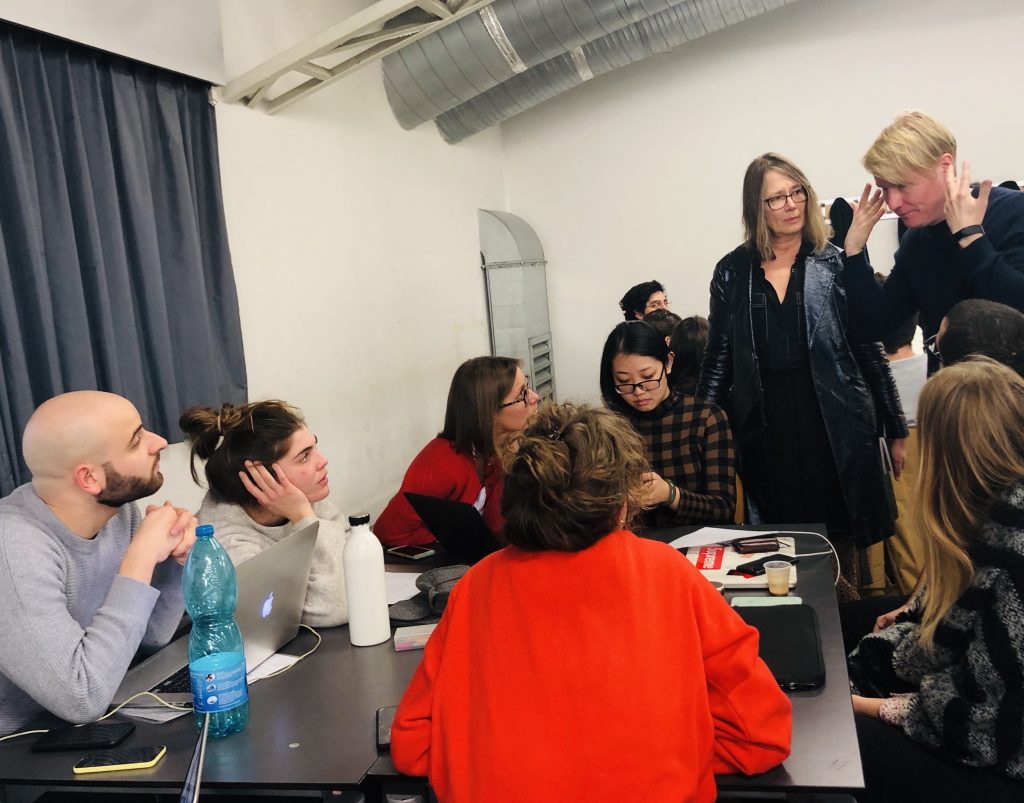
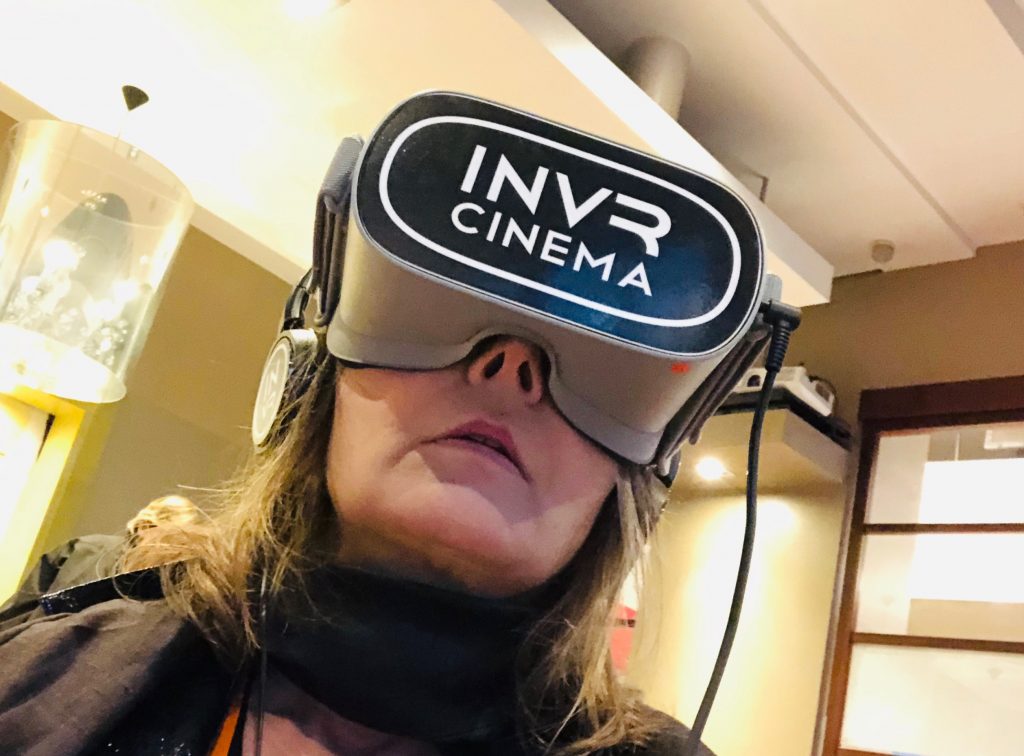
Meet Pia Tikka at the Berlinale 360° VR Screenings!
Join the talks and meet-ups with other VR professionals at the new screening venue “VR Cinema at Marriott”, which provides the ideal infrastructure to present VR content, thanks to our partner INVR.
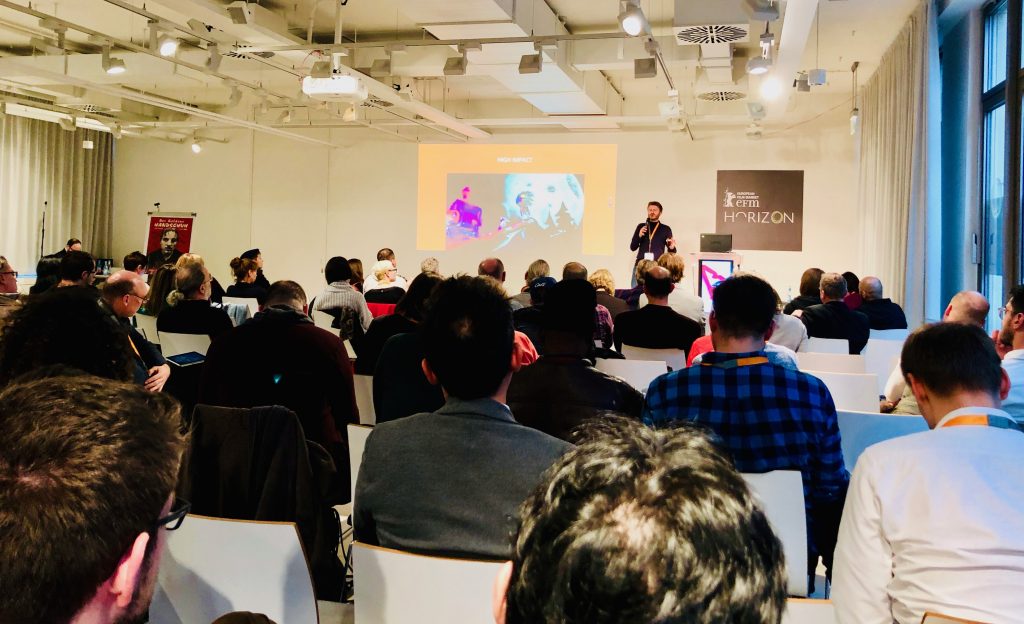
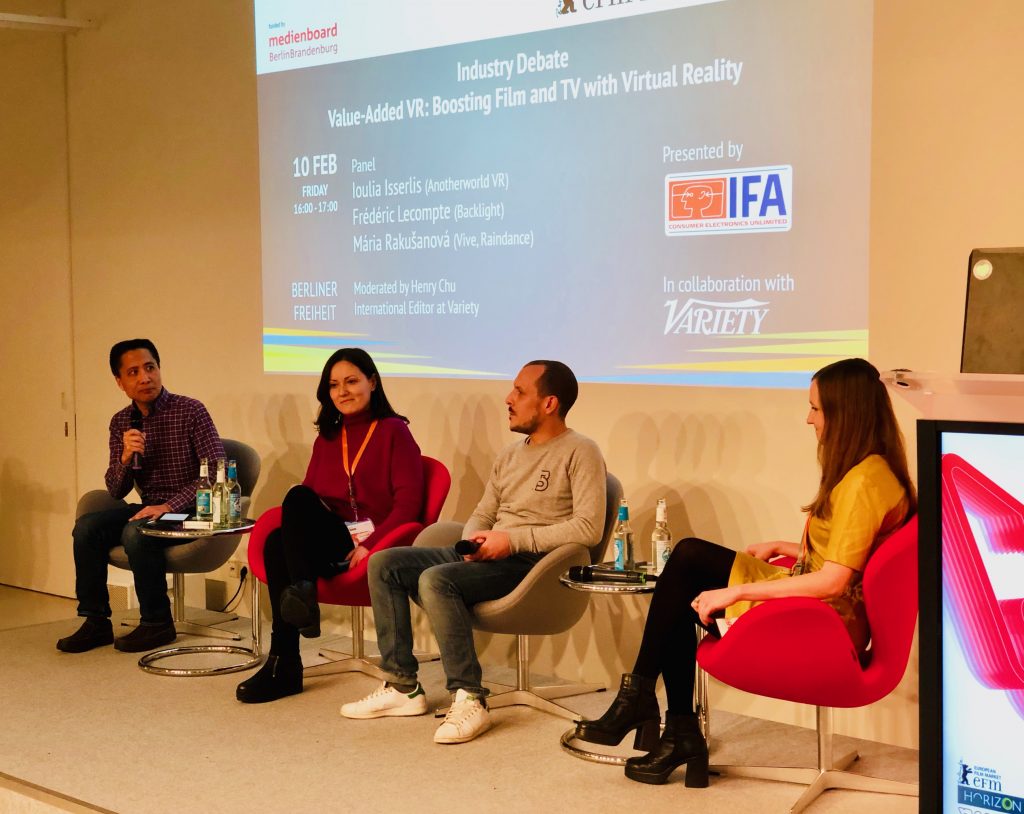
Screening Schedule & VR Library
Location: VR Cinema at Marriott
Opening hours: The cinema is open daily from 10 am-7 pm.
Experience all VR projects in the VR Library from the 12th to 13th February.

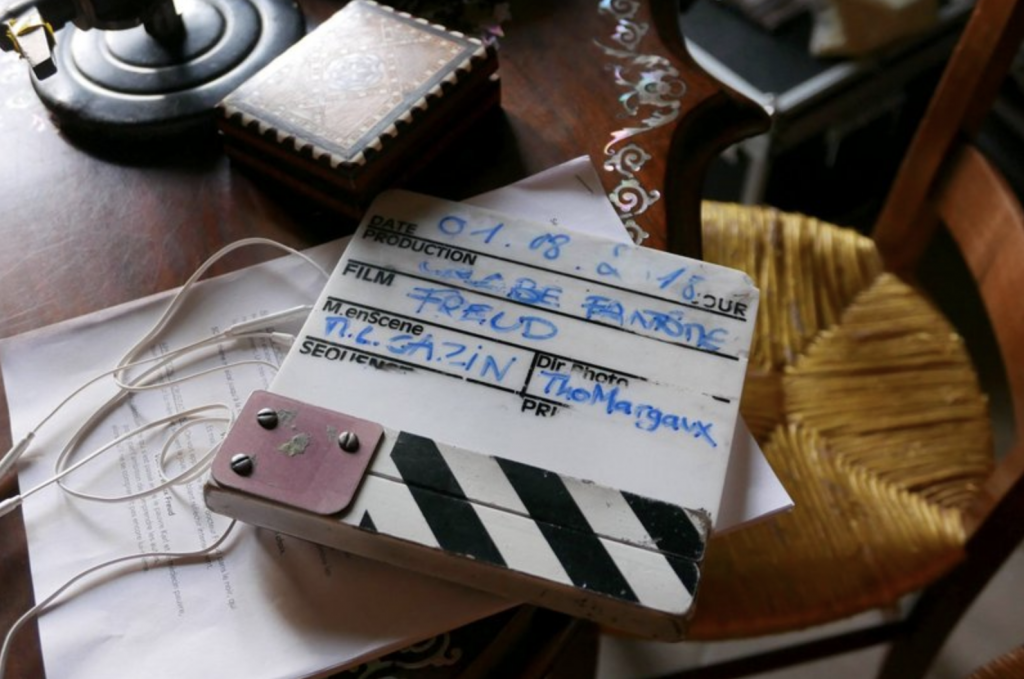
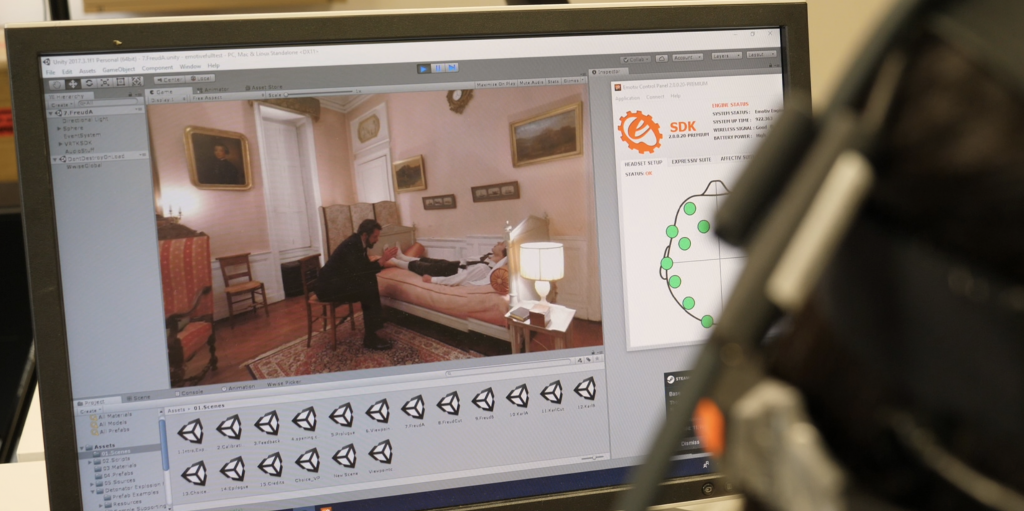
Presentation of the ongoing project Emotive VR prototype, an innovative form combining VR and EEG headsets. A neuro-interactive omnidirectional movie has been realized, visualized in Virtual Reality (VR) Head-Mounted Display (HMD). During the visualization, the EEG signals are recorded and analyzed in real time. Some visual effects and an interactive music vary according to the emotional state of the viewer.
Marie-Laure Cazin is a Fine Arts teacher in the High school of Arts and Design ESAD-TALM (France) and in Paris 1 Panthéon-Sorbonne. Part of the Enactive Virtuality Research Group, in BFM, University of Talinn, she is currently completing a PhD in Aix-Marseille University (France) on Cinema and Neurosciences. As an artist and a filmmaker, she has developed many experimental cinematic prototypes, using digital tools to create a live interaction between the film and performers or spectators. She collaborated with scientists for art-science projects, working with brains’ datas of emotions in her last interactive projects.
See projects on line (Fr)
Sound designer Matias Harju webpages (Eng)
EMOTIVE VR documentation online (Fr)
2 TALKS on EMOTIVE VR by Marie-Laure Cazin (ESAD-TALM, France)
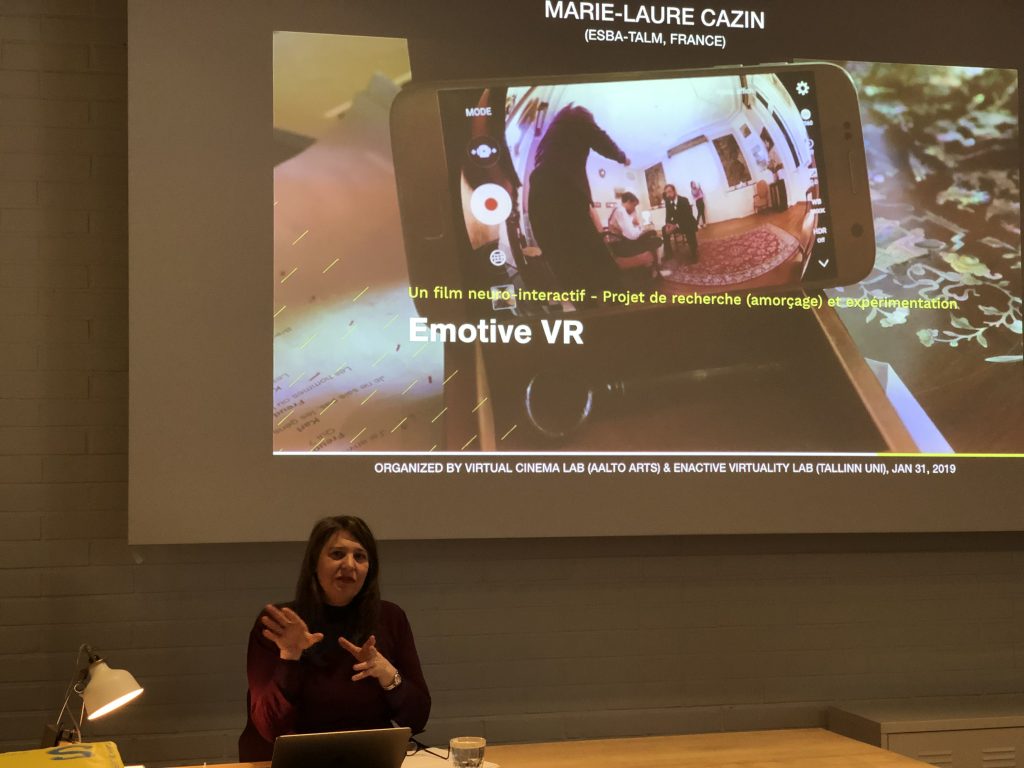
Visiting lecture at Aalto University, Aalto Studios, organised by Virtual Cinema Lab & Enactive Virtuality Lab, January 30, at 14-15
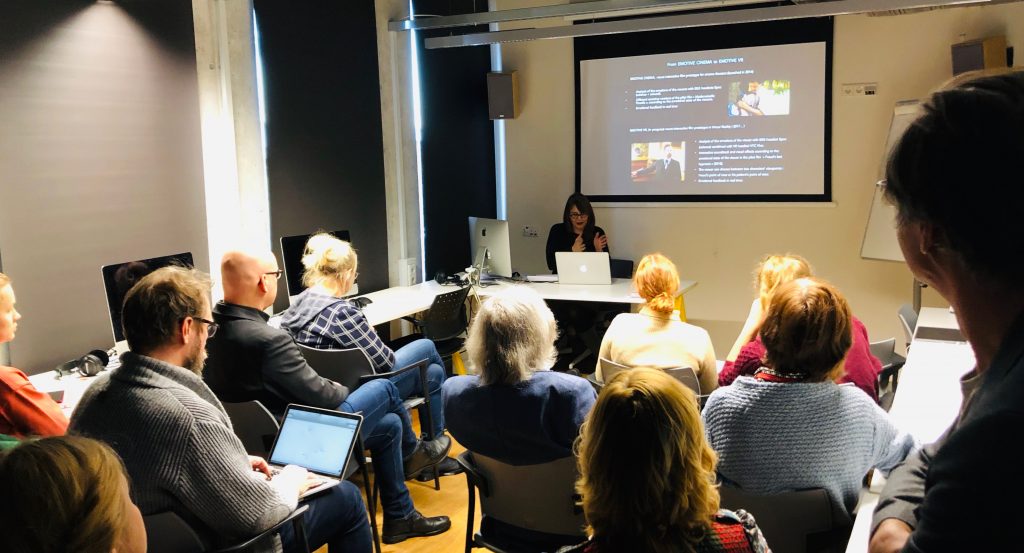
January 30, at 14-15 Place: N-416, BFM, Narva Mnt 27, Nova Building, Tallinn University.